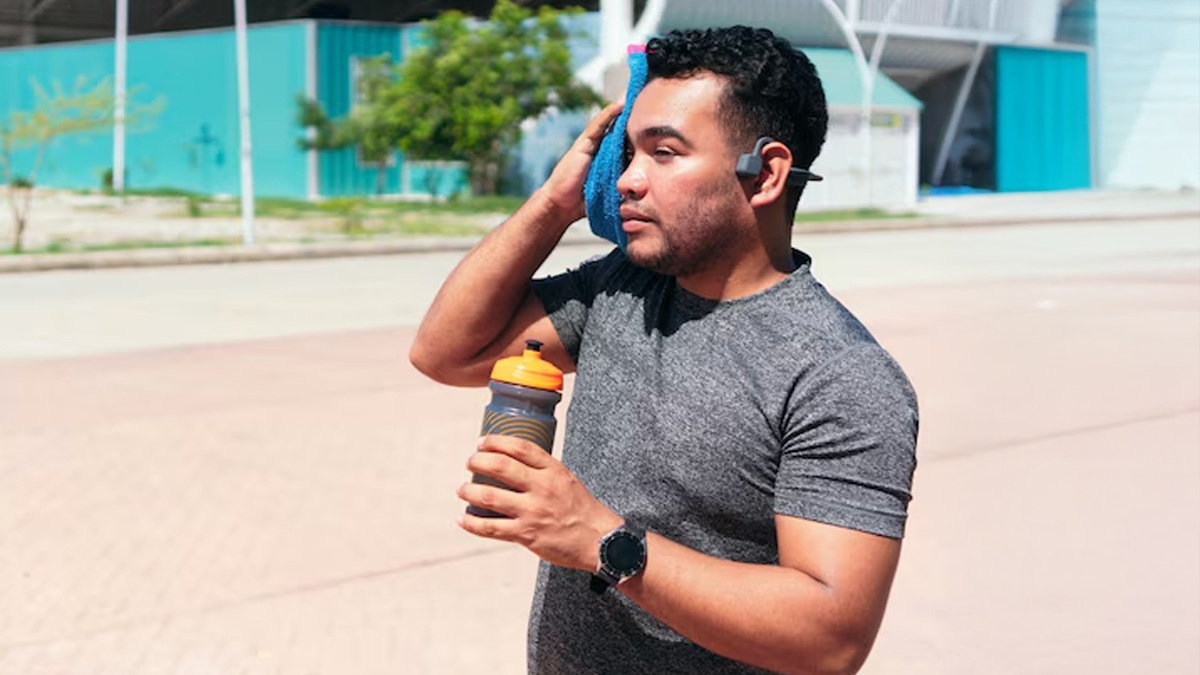
Hitting the gym is a great way to stay fit, but sometimes your body sends signals that something isn’t quite right. One common yet often overlooked issue is feeling lightheaded or unsteady after a workout. While it might seem like a minor inconvenience, it could be your body’s way of telling you to slow down and pay attention. Understanding the causes and knowing how to address them can make a big difference in your fitness journey. Regarding the same, an expert breaks down the causes, fixes, and red flags to watch for.
Table of Content:-
Why Does Dizziness Happen?
View this post on Instagram
Feeling lightheaded or dizzy after a workout can be unsettling—and it’s more common than you think. While it’s easy to brush it off as exhaustion, dizziness could signal underlying issues like dehydration, low blood sugar, or even poor workout habits. Dr Anuj Kumar Kadian, Orthopedic Surgeon, Newlife Multispeciality Hospital and Trauma Centre, Gurugram warns, that dizziness after the gym isn’t just fatigue. It’s a warning sign your body needs attention. He further highlights three key reasons for post-workout dizziness:
- Low Blood Sugar: “Skipping meals before the gym drains your energy. Your brain needs fuel to function!”
- Dehydration: “Sweating without drinking enough water drops blood pressure, causing dizziness.”
- Sudden Movements: “Standing up too fast after heavy lifts reduces blood flow to the brain.”
- He adds: “Ignoring these can lead to fainting or injuries. Always listen to your body.”
ALSO READ: Joining a Gym? Important Blood Tests to Take Before You Begin
Warning Signs You Should Never Ignore
While mild dizziness is common, these symptoms need immediate care:
- Blurred vision or confusion
- Chest pain or irregular heartbeat
- Fainting or near-fainting spells
- Severe headache or vomiting
- Dr Kadian’s Advice: “If dizziness lasts longer than a few minutes or worsens, stop exercising and seek help.”
Tips To Fix the Problem
-1741001557044.jpg)
Below are a few tips by the expert that may help individuals.
1. Fuel Your Body Right
- Eat Before & After: Have a light meal (carbs + protein) 1-2 hours pre-workout.
- Example: Banana with peanut butter or oatmeal with nuts.
- Stay Hydrated: Sip water during workouts. For intense sessions, add electrolytes.
2. Move Mindfully
- Avoid Sudden Stands: Sit for 30 seconds after heavy sets before standing.
- Use a Spotter: “If lifting heavy, ask a spotter to assist. They can catch you if you faint,” says Dr Kadian.
3. Warm-Up/Cool Down
Spend 5-10 minutes stretching before and after workouts to stabilize blood flow.
What Science Says
A study in the Journal of Sports Science & Medicine found that 30% of gym-goers experienced dizziness due to dehydration or low blood sugar. Researchers noted that those who drank electrolyte-rich fluids reduced dizziness by 45%.
When to See a Doctor

Dr Kadian advises consulting a specialist if:
- Dizziness happens often, even with proper hydration/nutrition.
- You have a history of heart issues, anaemia, or diabetes.
- Symptoms include chest pain or trouble breathing.
Prevention Checklist
- Eat a balanced meal 1-2 hours before the gym.
- Drink water every 15-20 minutes during workouts.
- Avoid skipping warm-ups or cool-downs.
- Train with a partner for safety.
ALSO READ: Soha Ali Khan’s New Fitness Video: How Goblet Squats, Leg Raises, and Pull-ups Boost Your Health
Conclusion
Feeling dizzy after the gym isn’t something to ignore—it’s your body’s way of signalling that something needs attention. Whether it’s dehydration, low blood sugar, or poor workout habits, understanding the causes can help you take the right steps to stay safe. By fueling your body properly, staying hydrated, and moving mindfully, you can prevent dizziness and keep your workouts effective.
Also watch this video
How we keep this article up to date:
We work with experts and keep a close eye on the latest in health and wellness. Whenever there is a new research or helpful information, we update our articles with accurate and useful advice.
Current Version